What does the boost to Pharmac’s budget mean for people with migraine?

And the importance of having a charity like ours advocating for medications Migraine Foundation Aotearoa New Zealand welcomes the Government’s announcement on Monday of a $604 million boost to Pharmac’s budget over the next four years. In early June, Pharmac added three migraine-specific preventive medications – galcanezumab (Emgality), erenumab (Aimovig) and atogepant (Aquipta) – to its Options […]
A false economy?

Press release Budget 2024 ignores over 753,000 people affected by one of Aotearoa New Zealand’s most disabling conditions The number of people estimated to be affected by migraine disease in Aotearoa New Zealand has risen from 642,000 to 753,000. Migraine ranks in the top four conditions in Aotearoa New Zealand for the highest number of […]
Shades for Migraine 2024
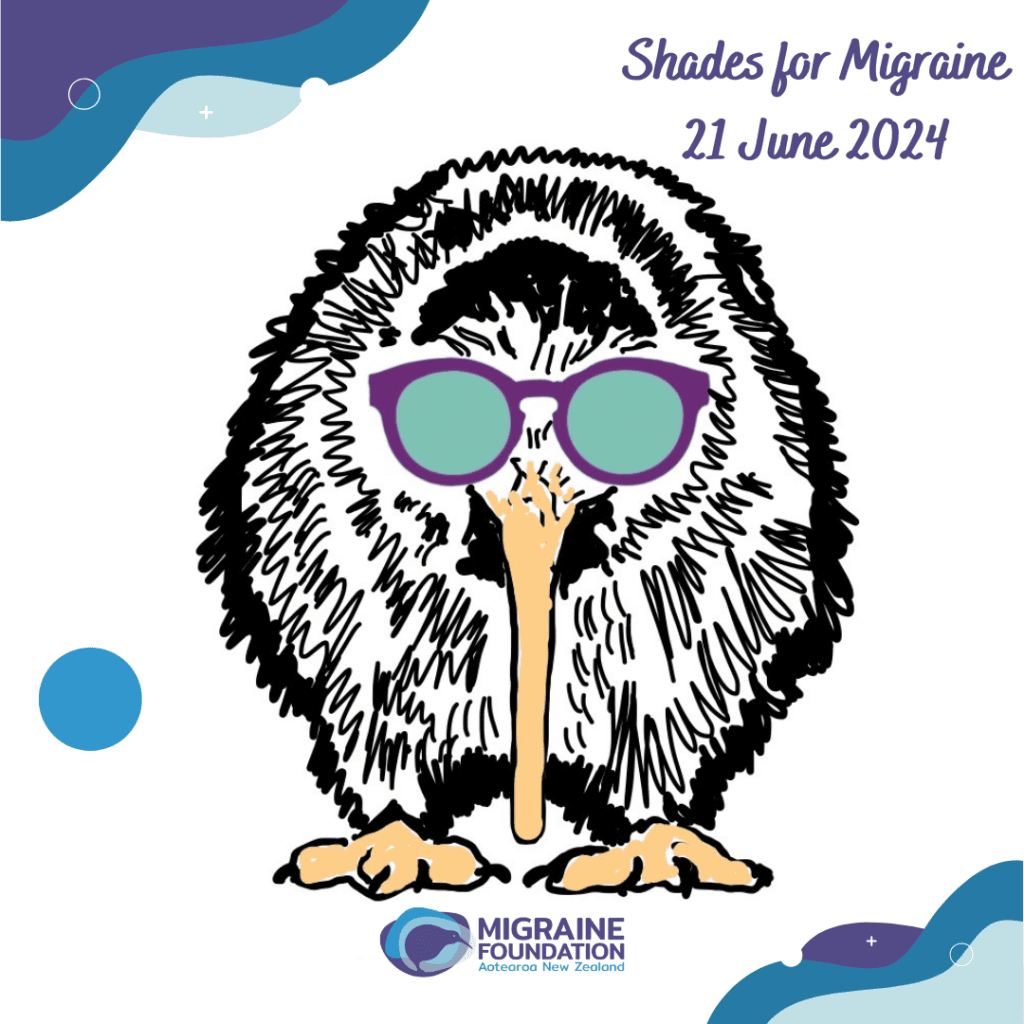
Shades for Migraine 2024 is fast approaching, so grab your sunnies, get creative and help raise awareness of migraine. What is Shades for Migraine? Shades for Migraine® is a global awareness campaign to raise awareness for the 1 billion people living with migraine disease worldwide, run by the Association of Migraine Disorders. Shades for Migraine […]
Modern migraine medications added to Pharmac’s Options for Investment list
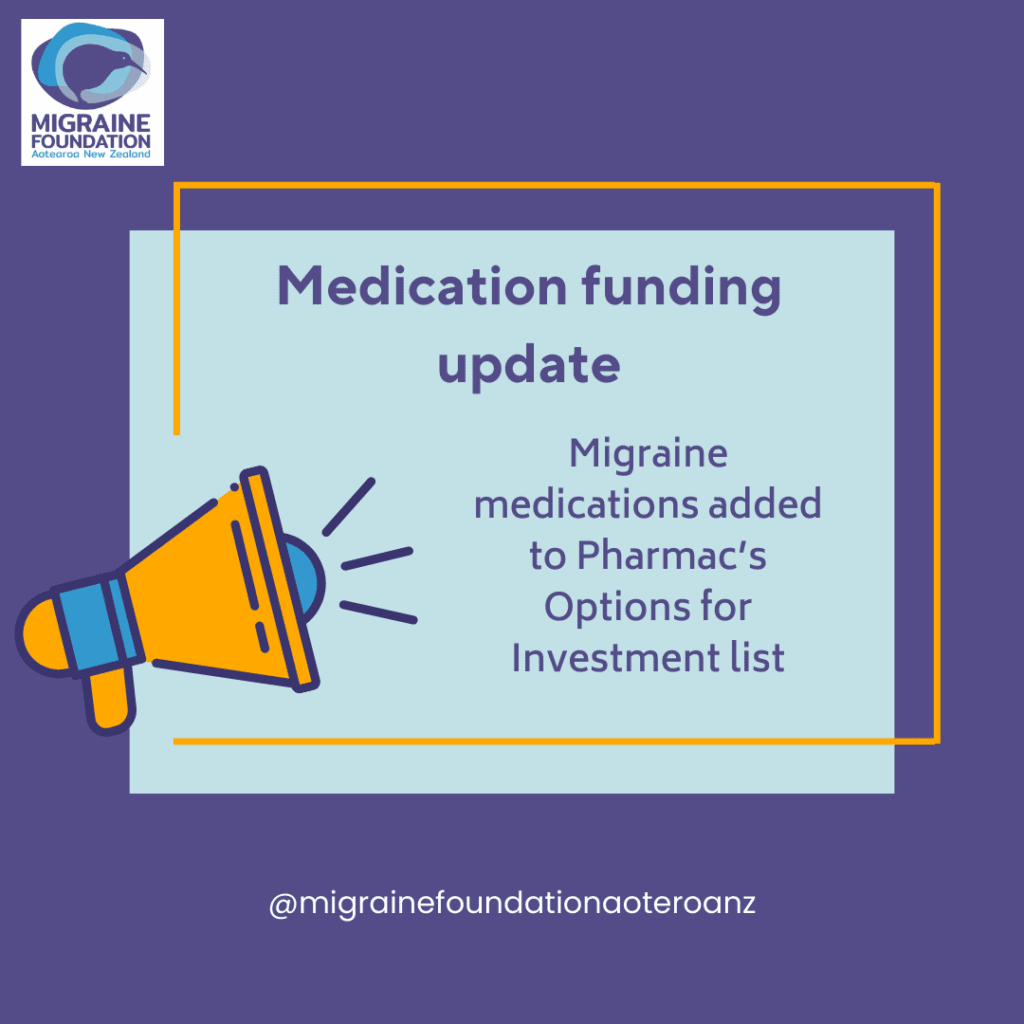
Funding of galcanezumab (Emgality), erenumab (Aimovig) and atogepant (Aquipta) progressed one step closer this week, with Pharmac adding these migraine-specific medications to its Options for Investment list for the prevention of both episodic and chronic migraine. All three of these medications target calcitonin gene-related peptide (CGRP), which is a neuropeptide involved in triggering and sustaining […]
Our partnership with the Neurological Alliance
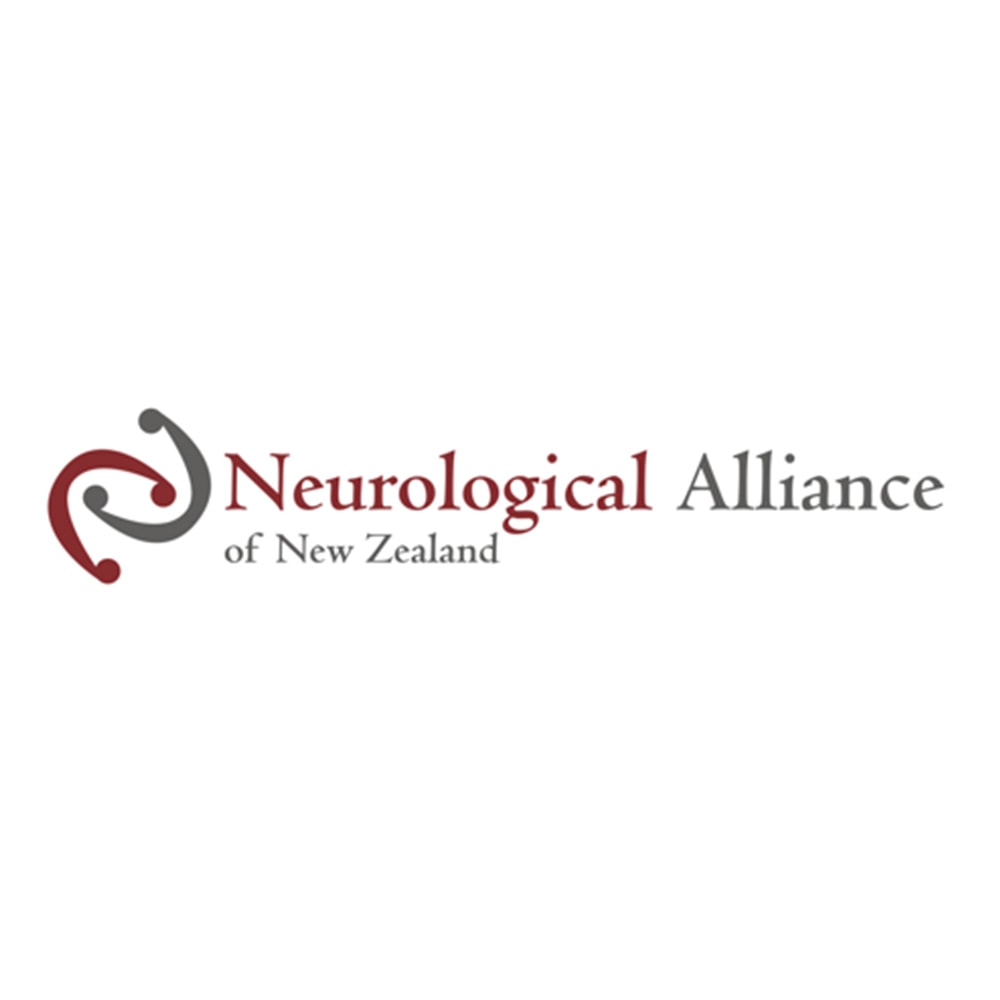
Migraine Foundation Aotearoa New Zealand is a member of the Neurological Alliance, a collection of (currently) 20 member groups representing the one in three New Zealanders who are or will be affected by a neurological condition during their lifetime. Other members include Stroke Foundation of NZ, Epilepsy NZ, Dementia NZ, Brain Injury NZ, Parkinsons NZ, Multiple […]
Inaugural NZ Medicine Access Summit
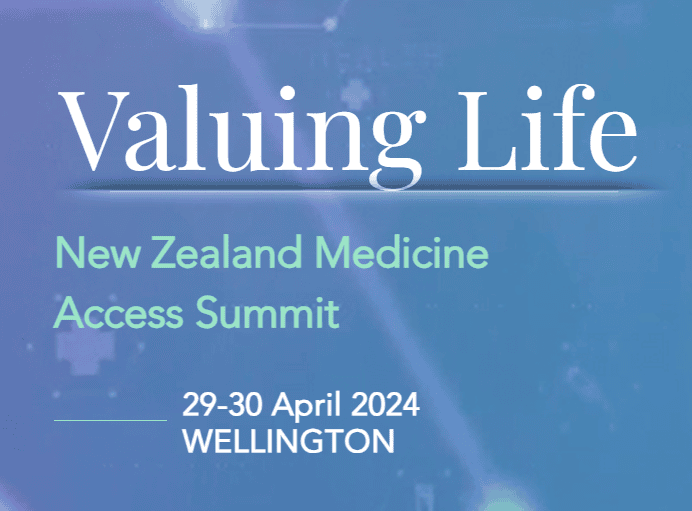
The first-ever national event to discuss New Zealand’s woeful access to modern medicines was held in Wellington, 29-30 April, at Parliament and hosted by The Honorable David Seymour, Associate Minister of Health. Fiona Imlach and Suzanne Value from Migraine Foundation Aotearoa NZ attended. The event was organized by Patient Voice Aotearoa, a volunteer-run advocacy group […]
Pharmac proposes to decline zolmitriptan after 17 years of waiting

Jump back to 2007. More than fifteen years ago, in 1991, sumatriptan was launched, the first acute medication specifically designed to treat migraine attacks by targeting a serotonin receptor found in blood vessels in the brain. It was described as miraculous. In half of patients, sumatriptan aborted attacks and reduced pain in 70%. Pain, nausea, […]
Neurological Advisory Committee meeting presentation
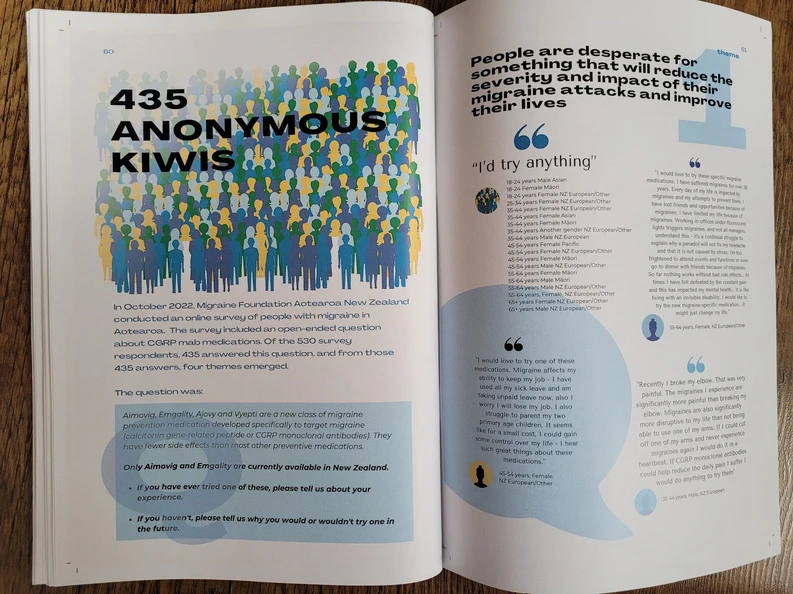
“The stories were heartbreaking” That was the comment from Dr Brian Anderson, Chair of Pharmac’s Neurological Advisory Committee, when speaking about the collection of stories we gave to Pharmac and the Committee about people’s experiences of living with migraine in Aotearoa New Zealand. These stories made an impression. No one can deny the reality of […]
What the Women’s Health Strategy means for people with migraine in Aotearoa

In July 2023, the Ministry of Health launched six new health strategies, the Pae Ora | Healthy Futures Strategies, as mandated by new legislation (the Pae Ora Act) that underpinned the restructuring of the health system. All of these strategies are important and set the direction for health services for the next decade. Three strategies […]
Lack of medicine access contributing to health workforce shortage
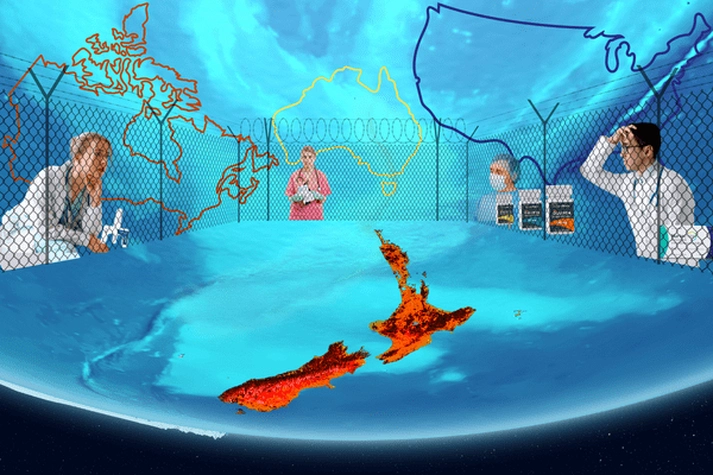
Despite the hedging of various Ministers of Health, it’s hard to avoid the conclusion that our healthcare workforce is in crisis. People are waiting weeks to see a GP. Between 2019 and 2022, 28% of general practices had fully closed their books. This was due to factors such as staff shortages, workload and burnout. According to […]

